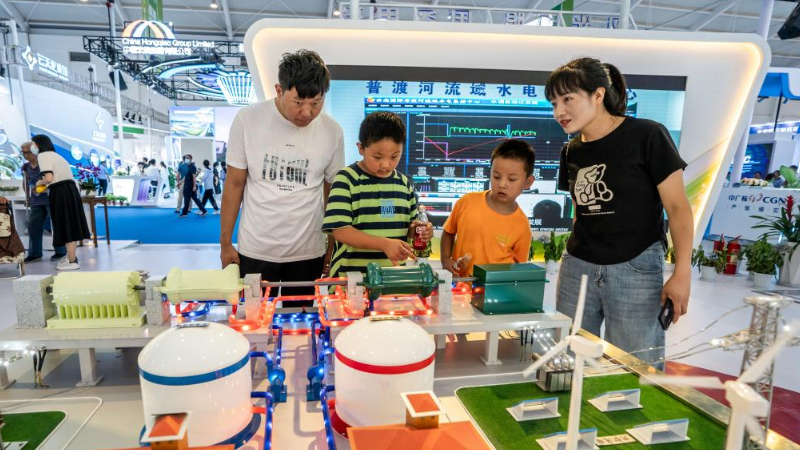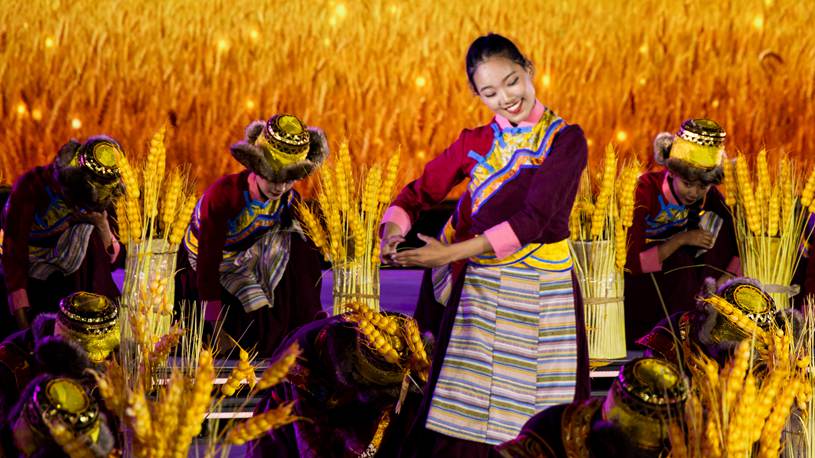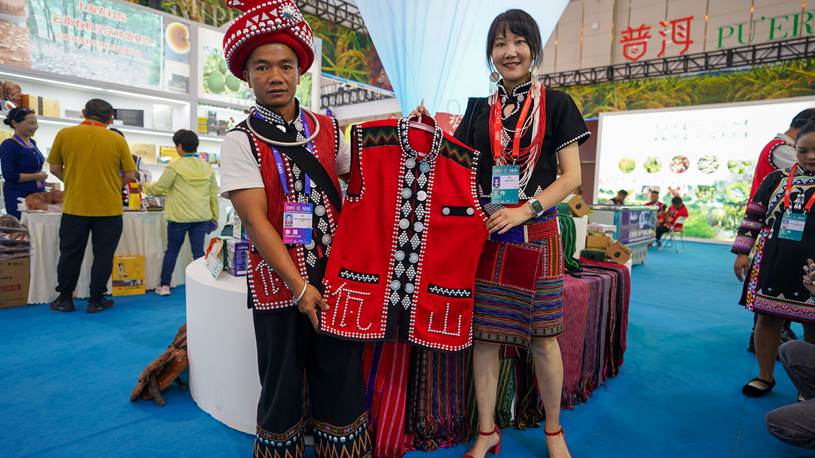
Aerial photo taken on Feb. 25, 2022 shows a view of China Hangzhou Esports Centre. (Xinhua)
BEIJING, Aug. 23 (Xinhua) -- In about a month, Luo Siyuan and Sun Linwei will represent China to compete in the e-sports event Arena of Valor in the Asian Games in Hangzhou in east China's Zhejiang Province.
"Nearly 10 years ago we were only fans of niche video games. After years of hard work, we are excited to be on the stage of the Asian Games. I hope more people can see the vigor of China's e-sports," said Luo, a player from eStar, an e-sports club.
E-sports, including Arena of Valor Asian Games Version and League of Legends, will be an official medal sport for the first time in the upcoming 19th Asian Games, which is scheduled from Sept. 23 to Oct. 8. The gamers will compete for seven gold medals in the e-sports category.
"The Asian Games in Hangzhou is a good opportunity for China and even Asia as a whole to develop the e-sports industry, and it can instill a sense of confidence regarding the sustainability of the industry," said Mario Ho, Chairman and CEO of NIP Group which owns eStar.
E-sports was featured as a demonstration sport at the 2018 Asian Games in Jakarta and Palembang, and the Chinese teams won two golds and one silver.
China's e-sports industry is developing rapidly. The number of e-sports gamers in the country hit around 488 million as of 2022. The country ranks first in the world in terms of the output value, development speed and audience number of the industry, making it the world's largest e-sports market.
"E-sports has become a popular competition track in the digital sports industry," said Huang Chuxin, director of the New Media Research Center of the Chinese Academy of Social Sciences.
As an important part of China's constantly growing digital economy, the e-sports industry is injecting new impetus into consumption growth, Huang noted.
To bolster the long-term development of the industry, China has provided consistent support through education, research and policy initiatives.
In 2015, the General Administration of Sport of China issued interim regulations on the management of e-sports events, specifying policies and norms for the development of the industry.
In 2019, "e-sports operator" and "e-sports player" gained official recognition as two new professions in China.
To address the shortage of professionals, China's Ministry of Education has incorporated e-sports as a major in universities. At present, 65 colleges, including the Beijing-based Communication University of China, offer courses related to e-sports.
In April this year, a research institute on China's e-sports industry was inaugurated in Shanghai, which is expected to enhance the research level and service capability of the country's e-sports industry.
Many cities across China, such as Shanghai and Guangzhou, have introduced favorable policies to boost the e-sports industry in recent years, aiming to become global leaders.
"The cities are embracing e-sports mainly because they are optimistic about the economic development opportunities in the industry and its great potential in the future given the huge e-sports market and a tremendous user base," said Hu Gang, a professor of public administration at Jinan University.
The e-sports sector is also playing an important role in cultural exchange and promotion. The Honor of Kings heroes were featured in a parade at the Universal Beijing Resort earlier this year, integrating Chinese e-sports culture with trendy cultural icons.
"I am very happy to see the inclusion of elements beloved by local young consumers," said Zhao Lin, senior vice president of Marketing and Sales of Universal Beijing Resort.
Amid the strong rebound of cultural tourism, incorporating game IPs into offline events is an innovative attempt to seamlessly blend with local culture and enhance the experience of visitors, Zhao added. ■












